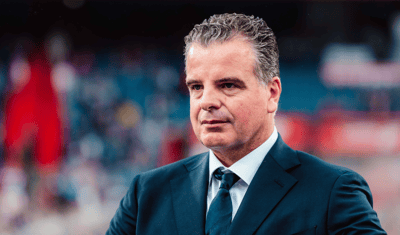
The trade buzz surrounding Pittsburgh Pirates ace Mitch Keller has intensified as the MLB trade deadline approaches, and one proposed deal with the Chicago Cubs appears to offer a balanced solution that could benefit both franchises. While the Pirates remain on the edge of contention, Keller’s rising value and the Cubs’ need for frontline pitching could create the ideal conditions for a mutually beneficial agreement.
Mitch Keller has developed into a true No. 1 starter for the Pirates, posting strong numbers this season and showing the kind of consistency and command that contending teams crave during the stretch run. With an ERA hovering around the low 3.00s and a strikeout-to-walk ratio that continues to improve, he’s no longer just a high-potential arm—he’s a proven force on the mound. Given his current level of performance and the fact that he remains under team control beyond this season, Keller is among the most valuable pitchers potentially available on the trade market.
For the Cubs, who have struggled with injuries and inconsistency in their rotation, acquiring Keller would send a strong message that they intend to compete now. With Jameson Taillon on the injured list and Justin Steele recently returning from a slow start, the Cubs are in need of a durable, dependable starter who can stabilize the rotation. Keller checks all those boxes and fits their competitive window, making him an ideal target.
The proposed trade package making the rounds includes a combination of major league-ready talent and high-upside prospects from Chicago. According to analysts, a potential deal could center around outfielder Owen Caissie, one of the Cubs’ top prospects, along with a young arm like Ben Brown or Jordan Wicks, and possibly a versatile infield piece such as Nick Madrigal or a lower-level pitching prospect.
From Pittsburgh’s standpoint, the return would help accelerate their long-term vision without entirely punting on the current season. Caissie brings power and a developing hit tool, while Brown or Wicks would give them cost-controlled pitching depth. Adding a big-league-ready utility player like Madrigal offers some immediate roster help, which aligns with the Pirates’ goal of remaining competitive while building for the future.
Financially, the deal also makes sense. Keller is due for a raise in arbitration next season and could command a significant contract extension. If the Pirates aren’t prepared to make that kind of investment, trading him at peak value becomes a logical move. For the Cubs, taking on Keller’s arbitration years aligns well with their payroll flexibility and current core.
Reactions around the league suggest that this type of package would not only make sense in theory but would likely appeal to decision-makers on both sides. The Cubs have the assets to make a serious push, and the Pirates have the leverage to demand a strong haul.
While nothing is finalized and talks remain speculative, this trade concept illustrates how a well-structured deal can serve both short-term ambition and long-term strategy. Whether or not this exact proposal materializes, the Cubs’ interest in Keller and the Pirates’ potential willingness to move him could make this one of the most compelling storylines leading up to the deadline.






